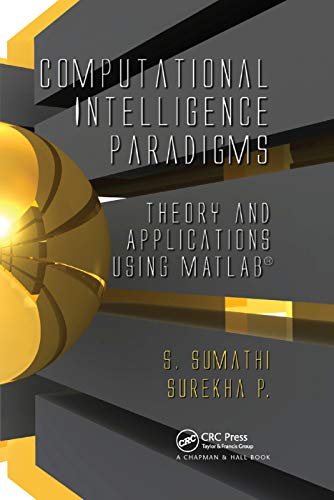
Inhaltsangabe
Offering a wide range of programming examples implemented in MATLAB®, Computational Intelligence Paradigms: Theory and Applications Using MATLAB® presents theoretical concepts and a general framework for computational intelligence (CI) approaches, including artificial neural networks, fuzzy systems, evolutionary computation, genetic algorithms and programming, and swarm intelligence. It covers numerous intelligent computing methodologies and algorithms used in CI research.
The book first focuses on neural networks, including common artificial neural networks; neural networks based on data classification, data association, and data conceptualization; and real-world applications of neural networks. It then discusses fuzzy sets, fuzzy rules, applications of fuzzy systems, and different types of fused neuro-fuzzy systems, before providing MATLAB illustrations of ANFIS, classification and regression trees, fuzzy c-means clustering algorithms, fuzzy ART map, and Takagi–Sugeno inference systems. The authors also describe the history, advantages, and disadvantages of evolutionary computation and include solved MATLAB programs to illustrate the implementation of evolutionary computation in various problems. After exploring the operators and parameters of genetic algorithms, they cover the steps and MATLAB routines of genetic programming. The final chapter introduces swarm intelligence and its applications, particle swarm optimization, and ant colony optimization.
Full of worked examples and end-of-chapter questions, this comprehensive book explains how to use MATLAB to implement CI techniques for the solution of biological problems. It will help readers with their work on evolution dynamics, self-organization, natural and artificial morphogenesis, emergent collective behaviors, swarm intelligence, evolutionary strategies, genetic programming, and the evolution of social behaviors.
Die Inhaltsangabe kann sich auf eine andere Ausgabe dieses Titels beziehen.
Über die Autorin bzw. den Autor
S. Sumathi is an assistant professor in the Department of Electrical and Electronics Engineering at PSG College of Technology, Coimbatore, India. Her research interests include neural networks, fuzzy systems, genetic algorithms, pattern recognition and classification, data warehousing and mining, operating systems, and parallel computing.
Surekha Paneerselvam is a lecturer in the Department of Electronics and Communication Engineering at Adhiyamaan College of Engineering, Hosur, India. Her research interests include robotics, virtual instrumentation, mobile communication, and computational intelligence.
„Über diesen Titel“ kann sich auf eine andere Ausgabe dieses Titels beziehen.
Weitere beliebte Ausgaben desselben Titels
Suchergebnisse für Computational Intelligence Paradigms: Theory &...
Computational Intelligence Paradigms: Theory & Applications using MATLAB
Anbieter: ThriftBooks-Atlanta, AUSTELL, GA, USA
Paperback. Zustand: Very Good. No Jacket. May have limited writing in cover pages. Pages are unmarked. ~ ThriftBooks: Read More, Spend Less 2.55. Artikel-Nr. G0367384558I4N00
Computational Intelligence Paradigms: Theory & Applications using MATLAB
Anbieter: Majestic Books, Hounslow, Vereinigtes Königreich
Zustand: New. Artikel-Nr. 394111988
Neu kaufen
Anzahl: 3 verfügbar
Computational Intelligence Paradigms: Theory and Applications Using Matlab
Anbieter: Revaluation Books, Exeter, Vereinigtes Königreich
Paperback. Zustand: Brand New. 851 pages. 9.25x6.00x2.00 inches. In Stock. Artikel-Nr. x-0367384558
Neu kaufen
Anzahl: 2 verfügbar
Computational Intelligence Paradigms : Theory & Applications using MATLAB
Anbieter: Buchpark, Trebbin, Deutschland
Zustand: Hervorragend. Zustand: Hervorragend | Sprache: Englisch | Produktart: Bücher. Artikel-Nr. 35648626/1
Gebraucht kaufen
Anzahl: 1 verfügbar

